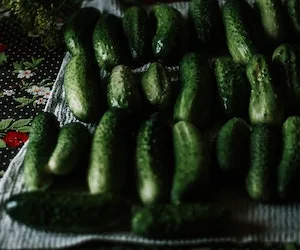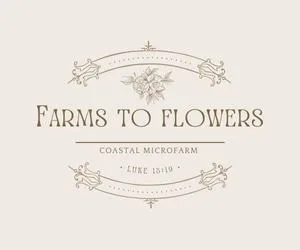
As one of the oldest cultivated crops, cucumbers (Cucumis sativus) hold a special place in our gardens and kitchens. They are known for their refreshing flavor, hydrating properties, and the versatility they bring to a wide range of dishes, from salads to cocktails.
Cucumber Varieties and Their Unique Traits
The numerous cucumber varieties can be categorized broadly into three types: slicing, pickling, and burpless/seedless. Each variety has distinct characteristics:
-
Slicing Cucumbers: Typically large with thick skins, slicing cucumbers are often used fresh in salads. Varieties include ‘Marketmore 76’ and ‘Straight Eight’.
-
Pickling Cucumbers: These are smaller and have thinner skins, which makes them ideal for pickling. ‘National Pickling’ and ‘Boston Pickling’ are popular types.
-
Burpless/Seedless Cucumbers: These include the long, thin-skinned varieties like ‘English’ and ‘Persian’ cucumbers. They have fewer seeds and are often less bitter than their counterparts.
Chemical Composition and Health Benefits
Cucumbers are loaded with nutrients and beneficial plant compounds:
-
Water: Cucumbers are composed of about 96% water. This high water content contributes to their low-calorie count, making them a hydrating and healthy choice.
-
Vitamins and Minerals: While not as nutrient-dense as some vegetables, cucumbers still supply a good amount of vitamin K and milder amounts of vitamin C, magnesium, and potassium.
-
Antioxidants: Cucumbers contain beneficial plant compounds such as flavonoids and tannins, which have antioxidant properties. These can help prevent damage caused by free radicals and reduce the risk of chronic diseases.^[1^]
-
Cucurbitacins: Cucumbers contain a group of compounds known as cucurbitacins, which can impart a bitter taste. These compounds have been the subject of research for their potential to inhibit the growth of cancer cells.^[2^]
Growing Conditions
Cucumbers love sun and warmth and require well-drained soil. The soil, weather, and care can significantly impact the taste and size of the cucumber. Specific varieties have been bred to resist certain diseases and adapt to different climates, making cucumbers a worldwide staple.
Cucumbers in Global Cuisine
From the refreshing Greek tzatziki, the Indian cucumber raita, to the classic American dill pickles, cucumbers grace tables around the world. Their cooling effect and crisp texture make them a beloved ingredient in many cultural dishes.
Remember, beyond their crunch and cooling effect, cucumbers bring a plethora of health benefits to the table. So go ahead, and crunch into that cucumber – your body will thank you!
References:
- Nsoesie, G., Gamedoagbao, D.K. and Okonko, I.O., 2013. Comparative assessment of vitamin contents in some commercially available brands of yogurts in Port Harcourt metropolis, Nigeria. International Research Journal of Microbiology (IRJM), 4(3), pp.98-103.
- Yuan, Y., Liu, Q., Zhao, M., & Xie, P. (2020). A comprehensive review on phytochemistry, bioactivities, and biosynthetic pathway of cucurbitacins. Natural product communications, 15(3), 1934578X2090964.
